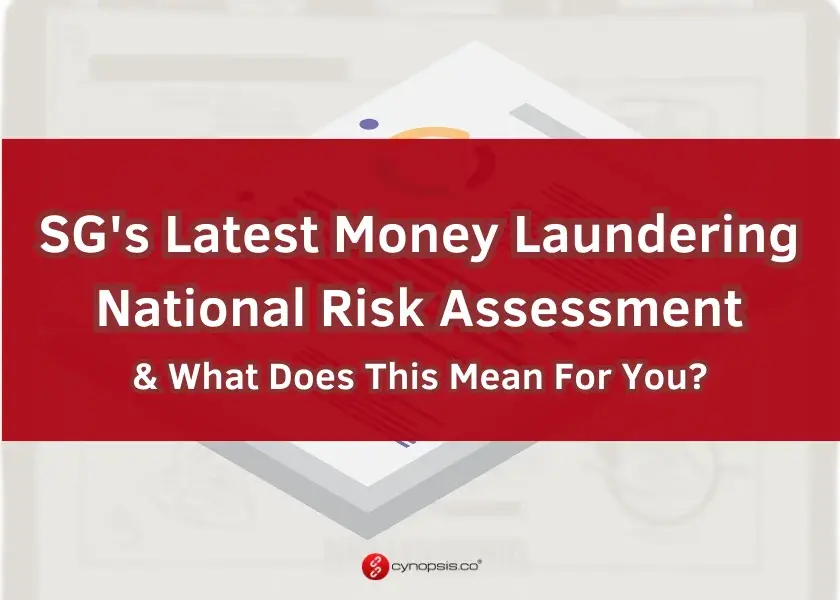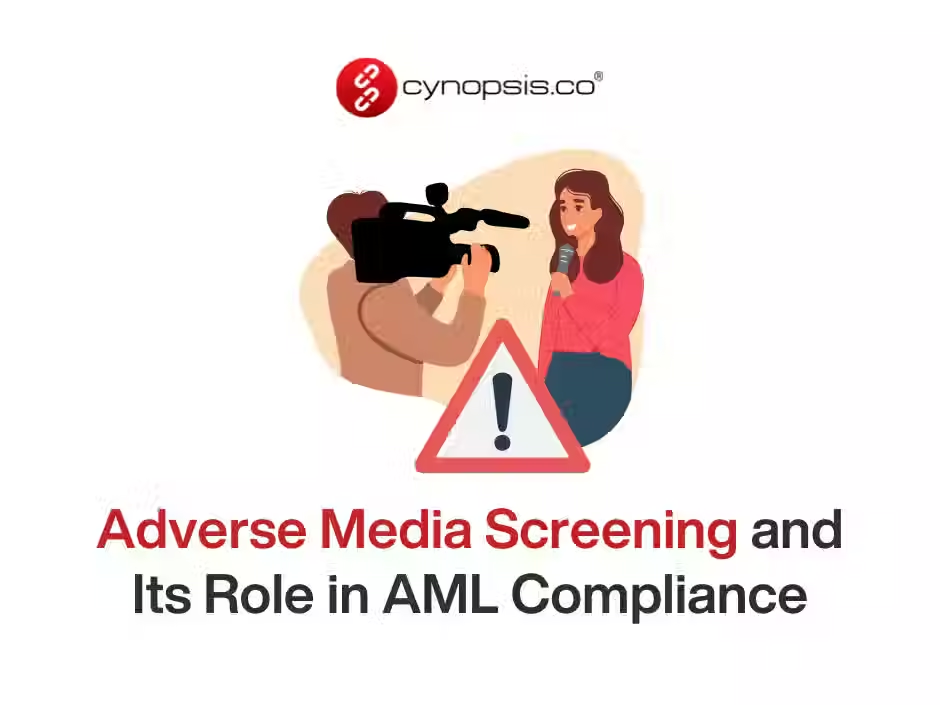SG's Latest Money Laundering National Risk Assessment
- Marketing Cynopsis
- Jun 28, 2024
- 3 min read
Updated: Jun 12, 2025

Last Thursday, Singapore released its newest National Risk Assessment (NRA) on money laundering (ML). This comprehensive report combines insights from law enforcement, Singapore’s Financial Intelligence Unit (Suspicious Transaction Reporting Office or STRO), regulatory bodies, as well as feedback from the private sector and international counterparts.
Key Findings
The ML National Risk Assessment provided an in-depth analysis of Singapore's exposure to money laundering risks. Considering the geopolitical climate, economic trends, and technological advancements that have reshaped financial crime.
Key Money Laundering Threats Identified

The primary money laundering threats identified include proceeds from corruption abroad being laundered through Singapore, and trade-based money laundering, which involves over/under-invoicing of goods and services through financial and professional intermediaries. Earnings from fraudulent activities, particularly online fraud, are also being laundered, alongside revenue from illegal online gambling linked to foreign organised crime groups. Additionally, proceeds from foreign tax evasion are being laundered through intermediaries and complex networks of legal entities.
Other Notable Money Laundering Threats Identified

The report also identified other notable money laundering threats such as environmental crime, which includes illegal wildlife trade and logging, facilitated by Singapore's position as a financial centre and trading hub. Cyber-crime, including ransomware, hacking, and website defacement, and drug-related offences, with funds laundered from drug trafficking influenced by Singapore's proximity to the 'Golden Triangle' .
Sector-Specific Risks
Despite stringent controls, the banking sector faces high money laundering risks due to its exposure to cross-border transactions and diverse customer base. Other high-risk sectors include real estate companies, gaming/casinos, precious stones and metal dealers, digital payment token service providers, corporate service providers (CSPs), licensed trust companies, payment institutions with cross-border money transfer services, and external asset managers.

Financial Sector The banking and finance sector, especially in wealth management, is highly susceptible to money laundering. With the rise of digital banks, the sector faces increased risks and must implement stringent controls and thorough due diligence to mitigate these threats.
Designated Non-Financial Businesses and Professions (DNFBPs) Among DNFBPs, Corporate Service Providers (CSPs) face significant ML risks due to their involvement in company formation and management. The upcoming Corporate Service Providers Bill by the Accounting and Corporate Regulatory Authority(ACRA), aims to enhance regulatory oversight and compliance requirements for CSPs. This new legislation will play a crucial role in mitigating money laundering risks by ensuring that CSPs adhere to stringent AML protocols.
What This Means for You?
The NRA findings has highlighted the need for businesses and professionals to take proactive steps to align with Singapore's strengthening AML framework.


Businesses and organisations, particularly those identified in the report as high-risk ML sectors, such as Corporate Service Providers (CSPs), are advised to focus on the above areas to prevent and detect money laundering activities.
How Cynopsis Solutions Can Help
At Cynopsis, we are committed to supporting businesses in meeting stringent regulatory standards. In light of the latest National Risk Assessment report, we have updated our risk assessment processes to better align with the latest regulations. Our comprehensive solutions are designed to simplify and enhance due diligence, monitoring, and compliance efforts.
As a multi-award-winning solution, ARTEMIS meets global regulatory standards and has been successfully deployed
across various sectors, including Banking & Finance,
FinTech, Blockchain and DNFBPs. ARTEMIS features a security-by-design framework, empowering Compliance officers to automate and enhance their due diligence processes.
ATHENA is a real-time intelligent transaction monitoring
solution designed to combat money laundering, terrorism
financing, and fraud. Utilising proprietary AI modelling
and AML rules incorporating Key FATF risk indicators,
ATHENA transforms complex transaction data into clear,
intuitive charts for compliance review and escalation.
Together, ARTEMIS and ATHENA equip businesses and organisations with the tools needed to stay current with regulations for effective compliance and risk mitigation.
To discover how our solutions can benefit your organisation, book a demo today and experience firsthand how we lighten your compliance burdens and help you stay resilient against financial crimes.
Cynopsis Solutions specialises in utilising advanced technologies to digitise and simplify complex compliance processes, with a particular focus on KYC, KYB, AML, & CFT. Our comprehensive solutions are meticulously designed in accordance with global FATF recommendations and are applicable in over 180 jurisdictions.
Cynopsis Solutions has received several prestigious accolades, including the MAS FinTech Awards, RegTech100 recognition, and a place in the Financial Times Top 50 High Growth Companies in APAC.
We have effectively assisted hundreds of organisations across a wide range of sectors, including Banking and Financial Services, FinTech, Blockchain, and Designated Non-Financial Businesses and Professions.





